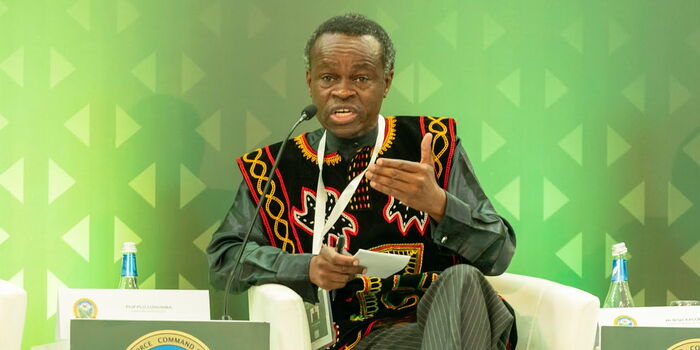Patrick Loch Otieno Lumumba, a Kenyan lawyer with impeccable oratorical skills, was last week unveiled as the new host of Lumumba’s Africa, a TV show that airs on RT, a global TV Station owned by the Russian Government.
In an introductory article authored by Anna Belkina, RT's deputy editor-in-chief and head of communications, the show will deliver a deep and insightful look into the African Continent.
She further indicated that the show is based out of Africa.
"We are also proud to present a new show on RT, based out of Kenya – ‘Lumumba’s Africa’, with Professor P.L.O. Lumumba. The program delivers a deep and insightful look into the matters that are still most salient to Africa as a whole and many of its nations," she explained.
"Professor P.L.O. Lumumba takes his audience on a dramatic and educated tale of African issues like economic development, the colonial legacy, energy, education – and, most vividly, the bright hope for the future of Africa itself."
To promote the show, RT launched an ad campaign running throughout the summer of 2024 in Ethiopia, Ghana, Kenya, Tanzania, Uganda, and Zimbabwe.
In Kenya, billboards with the station's parakeet green logo and faces of African leaders such as the late Milton Obote and Julius Nyerere sprouted across the capital city.
In her article, Belkina noted that RT battled with what she described as pervasive Western mainstream media dominance for nearly two decades.
"America’s CNN and the New York Times, Britain’s BBC and The Guardian have dictated to the likes of Russia, India, South Africa, Indonesia and dozens and dozens of countries what to believe about the world and themselves; who is good and who is bad; what is black and what is white," she wrote.
"I am sure that there will be even more provocative questions that RT will seek to ask in the months to come. Why borrow money from the IMF if your country is rich in natural resources? Do international corporations care more about African people or their own profits? Do European leaders dream about getting their colonies back? Should the West pay reparations for slavery? Why did Nigeria nearly get dragged into a war over US and French interests in neighbouring Niger? Should the US dollar remain the main global reserve currency?"
Lumumba is an advocate of the High Court of Kenya and Tanzania as well as the Director of The Kenya School of Laws since the year 2014.
He holds a Bachelor of Laws, Master of Laws, and a PhD in the Laws of the Sea at the University of Ghent in Belgium. By Derrick Okubasu, Kenyans.co.ke






